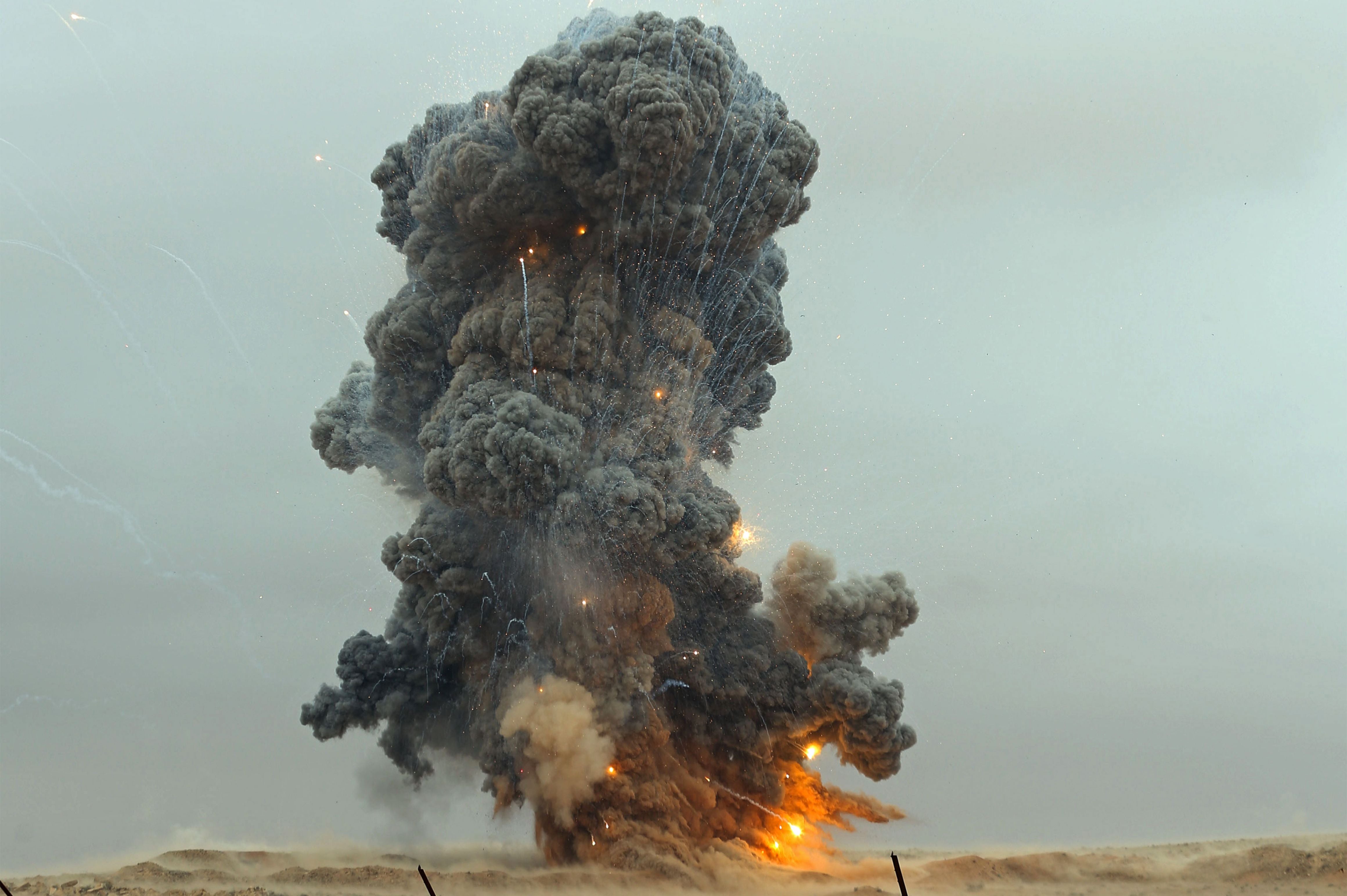Your support helps us to tell the story
From reproductive rights to climate change to Big Tech, The Independent is on the ground when the story is developing. Whether it's investigating the financials of Elon Musk's pro-Trump PAC or producing our latest documentary, 'The A Word', which shines a light on the American women fighting for reproductive rights, we know how important it is to parse out the facts from the messaging.
At such a critical moment in US history, we need reporters on the ground. Your donation allows us to keep sending journalists to speak to both sides of the story.
The Independent is trusted by Americans across the entire political spectrum. And unlike many other quality news outlets, we choose not to lock Americans out of our reporting and analysis with paywalls. We believe quality journalism should be available to everyone, paid for by those who can afford it.
Your support makes all the difference.Hundreds of Sudanese men reportedly hired by an Emirati security firm as guards in the United Arab Emirates, were tricked into fighting in Libya, a new investigation by Human Rights Watch has revealed.
As many as 390 men, many of them from the Sudanese capital of Khartoum, were recruited by Black Shield Security Services believing they would be guarding facilities in the UAE including malls and hotels.
Instead, according to HRW, they found themselves undergoing eight-weeks security training before being deployed to Libya’s oil crescent, which since 2016 has been the battleground of multiple offensives .
HRW spoke to at least 12 recruits and reviewed Black Shield Security Services documents as well as footage taken by the men in UAE and Ras Lanuf, the eastern oil crescent town where they were eventually deployed.
The men told HRW they lived alongside Libyan fighters aligned with the forces of renegade commander General Khalifa Haftar and were ordered to guard the surrounding oil facilities he controlled.
The recruits were reportedly promised between $500 and $1,000 per month in wages. Those interviewed said they were so eager to secure what they thought were well-paid and safe roles, they paid between $190 and $1250 in recruitment fees.
Many of the men said they became suspicious after their passports were held and they went through such extensive training in the UAE.
“We kept asking about the actual locations, but he still refused to tell us,” said one man called “Naji,” 33.
“And I thought if he was not willing to trust me with this information, how are you trusting me to go guard such a sensitive location, I didn’t want to go through with it.”
Those who went through with the process described only finding out about their destination when they landed in a military base and were able to read a description on a water bottle indicating they were in Libya.
“The Libyan fighters treated us horribly, they would push us with their weapons, and try to provoke us and terrorize us,” another Sudanese recruit called Amer told HRW.
“We couldn’t get in touch with anyone and we were afraid that if we did anything wrong, they would kill us or hurt us. So, we all stayed silent and tried not to put ourselves in danger.”
HRW says the UAE has not addressed the allegations made against it by the Sudanese men. In a statement that news reports attributed to Black Shield, the company denied all allegations of deceiving its workers regarding the nature or location of the work and stressed that it does not engage in any services or actions of a military nature.
Libya has been torn apart by civil conflict since the 2011 toppling of former leader Muammar Gaddafi.
In recent years the country has been roughly divided in two. In the East is General Haftar, who is backed by the UAE and Russia and nominally loyal to a rival administration anchored there. In the west is the intentionally recognised Government of National Accord in Tripoli which is backed by Turkey and various armed factions.
A UN panel of experts said the UAE has deployed military personnel and transferred at least five types of military equipment into Libya including armoured personnel carriers and patrol vehicles and a French Dassault Mirage 2000-9 jet fighter.
The Emiratis vehemently deny backing Haftar militarily.
The HRW investigation focuses on shadowy Emirati firm Black Shield Security Services which it says is registered with the Abu Dhabi Department of Economic Development and is listed on the Government of Abu Dhabi’s website as a security services company established in 2019.
According to job contracts reviewed by HRW the company is owned by Daien Saif Muaded al-Kaabi, an Emirati man described in a 2012 local news article as a colonel in the armed forces.




Join our commenting forum
Join thought-provoking conversations, follow other Independent readers and see their replies
0Comments